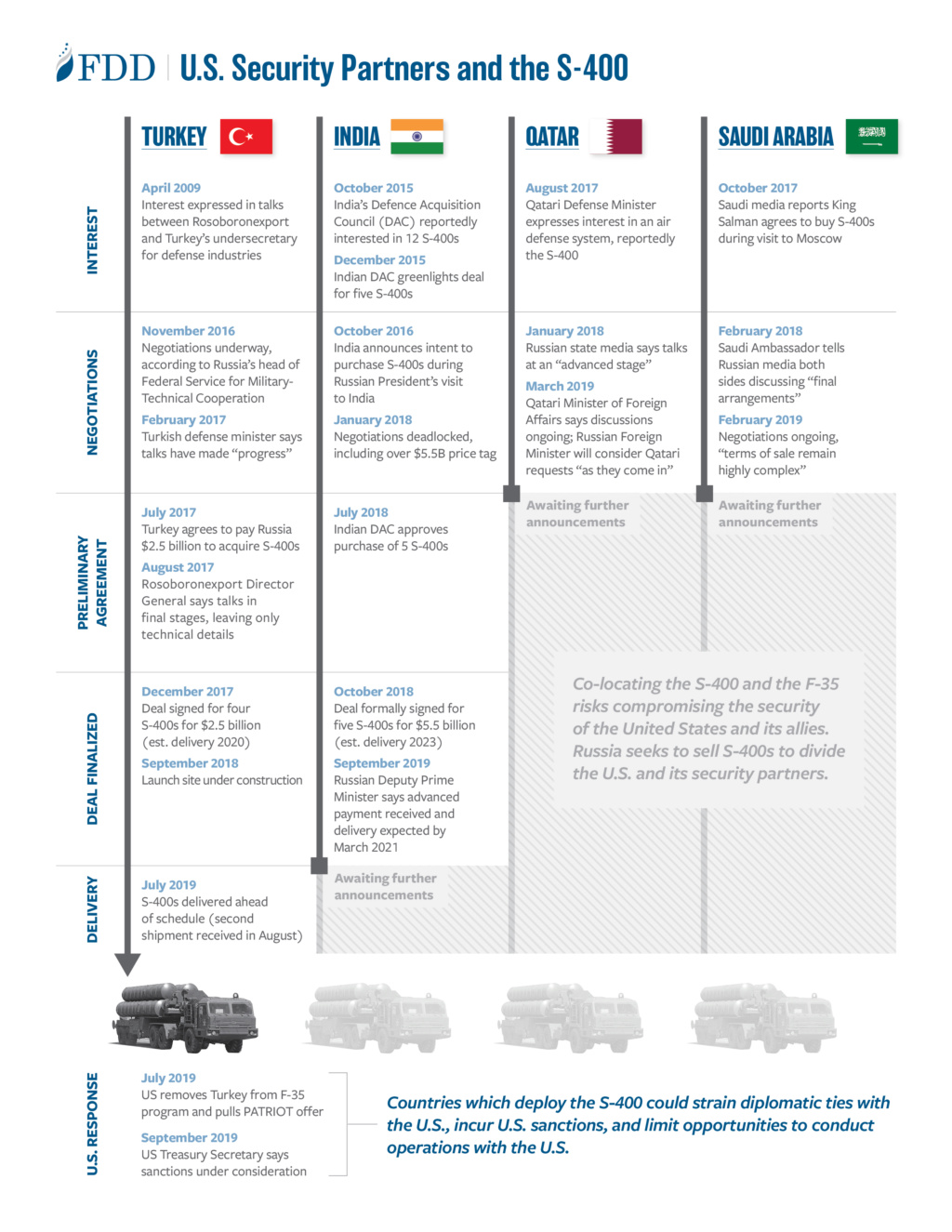 George1 Tue Oct 10, 2017 11:18 am
George1 Tue Oct 10, 2017 11:18 am
Exports of Russia’s S-400 missile systems
Currently, the S-400 systems are in service only in Russia
TASS-FACTBOX. On Monday, the Federal Service for Military-Technical Cooperation announced that Russia and Saudi Arabia reached agreements on the supplies of S-400 missile systems to Riyadh.
Currently, the S-400 systems are in service only in Russia. As of Monday, the contracts on the supplies of S-400 Triumf systems (NATO reporting name: SA-21 Growler) have been signed with four countries, including Saudi Arabia.
China
In July 2014, then-Kremlin chief of staff, Sergey Ivanov, told reporters that China could become the first foreign customer of the S-400. Shortly after, Russia’s Zvezda TV channel reported about China’s plans to buy at least six S-400 divisions worth more than $3 bln. On November 26, 2014, Vedomosti business daily reported, citing sources close to the Russian Defense Ministry, that Moscow signed a contract to supply the S-400 to China. On October 27, 2015, Director General of Rosoboronexport, Russia’s arms exporter, Anatoly Isaykin told reporters that it would supply the S-400 to China "within the timeframe set by the contract." Neither the sum of the deal nor the exact date was announced.
In November 2015, Russia`s Presidential Aide for Military-Technical Cooperation Vladimir Kozhin confirmed to journalists that the contract had been signed. In March 2016, Director General of the Rostec state corporation Sergey Chemezov said China had made an advance payment for the supplies of these missile systems. In June, he said the Chinese army would obtain these systems not earlier than 2018. On April 26, 2017, the press service of the Federal Service for Military-Technical Cooperation confirmed that the contract started being implemented.
India
On October 15, 2016, after talks between Russian President Vladimir Putin and Indian Prime Minister Narendra Modi at the BRICS summit in Goa an agreement on S-400 supplies to India was signed. Neither the sum nor other details of the deal were unveiled. Earlier, Indian mass media reported about the country’s plans to buy five S-400 divisions.
Turkey
In November 2016, the talks between Turkey and Russia on the S-400 came to light. In March 2017, Rostec CEO Sergey Chemezov told reporters that the Turkish side expressed its wish to get a Russian loan on purchasing armaments, including the S-400.
On July 25, 2017, Turkish President Recep Tayyip Erdogan announced that "certain documents" as part of a deal on buying Russia’s S-400 were signed. The Russian side confirmed on September 12, 2017 that the contract was inked. President Erdogan said that Ankara had made an advance payment under the contract.
Turkey became the first NATO member-state purchasing Russia’s S-400. Russian Presidential Aide Kozhin stressed that giving to Turkey production technologies for S-400 systems was out of question. No details on the number of divisions were provided.
According to Kommersant business daily, Turkey paid more than $2 bln to buy four S-400 divisions. Turkish Undersecretary for Defense Industry Ismail Demir later said the delivery of S-400 systems would begin within two years.
Turkish Foreign Minister Mevlut Cavusoglu told the Aksam daily in an interview on Monday that Ankara could give up plans to buy the S-400 if no agreement on joint Russian-Turkish production of this system was reached.
Russia’s Defense Ministry representatives earlier said the S-400 could be exported to Belarus and Kazakhstan. No such supplies have been officially reported.
On August 28, 2017, the head of the Federal Service for Military-Technical Cooperation, Dmitry Shugayev, told Kommersant that about a dozen of bids to buy the S-400 were being considered.
In September, Russian Presidential Aide for Military-Technical Cooperation Vladimir Kozhin said in an interview with TASS that there was a waiting list of likely buyers eager to have this system. According to the official, countries of Southeast Asia, the Middle East and some member-states of the Collective Security Treaty Organization (CSTO) showed interest in the S-400.
More:
http://tass.com/defense/969682






